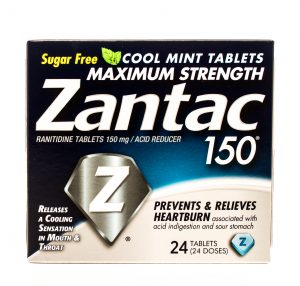 A Delaware Superior Court Judge has allowed roughly 75,000 plaintiffs to be heard in Delaware courts regarding whether the drug Zantac caused cancer. This is a massive turn of events, as nearly 50,000 similar lawsuits were dismissed in federal courts just two years ago. In 2022, the federal judge in the multidistrict litigation in Florida determined that the expert witness reports and testimony were not based on adequate science. Judge Medinilla, by contrast, ruled that the expert testimony should be heard in court with regard to the causation between Zantac and cancer. Ultimately, she determined that the strength of each side’s scientific arguments should be heard and considered by juries.
A Delaware Superior Court Judge has allowed roughly 75,000 plaintiffs to be heard in Delaware courts regarding whether the drug Zantac caused cancer. This is a massive turn of events, as nearly 50,000 similar lawsuits were dismissed in federal courts just two years ago. In 2022, the federal judge in the multidistrict litigation in Florida determined that the expert witness reports and testimony were not based on adequate science. Judge Medinilla, by contrast, ruled that the expert testimony should be heard in court with regard to the causation between Zantac and cancer. Ultimately, she determined that the strength of each side’s scientific arguments should be heard and considered by juries.
History of Zantac Regulation and Litigation
The heartburn medication commonly known as Zantac has been available on the market for decades, and was once one of the world’s top selling drugs. It is used to treat many gastrointestinal disorders including heartburn, duodenal ulcers, gastroesophageal reflux disease, and esophagitis. Zantac is known to contain an active ingredient called ranitidine. This molecule has been shown to degrade into NDMA (N-Nitrosodimethylamine) over time and when exposed to heat. NDMA is a known carcinogen.
In 2019, certain manufacturers and pharmacies stopped selling Zantac after NDMA was detected in a number of pills. Lawsuits began to pile up after this news began to spread, as plaintiffs argued that drug companies should have known that ranitidine was linked to cancer. These plaintiffs argued that companies failed to properly warn consumers about the risks of taking Zantac. In 2020, the FDA called for manufacturers and suppliers to remove the drug from the market.
The injured parties are seeking compensation from former Zantac manufacturers, including GlaxoSmithKline, Pfizer, Sanofi, and Boehringer Ingelheim. Following Judge Medinilla’s ruling, these companies decided to appeal the decision, arguing that there is no reliable scientific evidence to prove that Zantac causes cancer.
 The Zantac litigation initially included ten various types of cancers but has since been reduced to five: bladder, liver, esophageal, gastric, and pancreatic. Studies suggest that these cancers have the most clear linkage to Zantac usage. For more information on the specific cancers involved with this litigation, you can check out Attorney Clay Hodges’ previous Zantac post on this website.
The Zantac litigation initially included ten various types of cancers but has since been reduced to five: bladder, liver, esophageal, gastric, and pancreatic. Studies suggest that these cancers have the most clear linkage to Zantac usage. For more information on the specific cancers involved with this litigation, you can check out Attorney Clay Hodges’ previous Zantac post on this website.
What this Decision Means For You
The drug companies have been successful in fighting these civil lawsuits over the past few years. Recently, these companies filed a motion to exclude expert testimony, and this motion was denied by Judge Medinilla. This means that plaintiffs’ experts will be permitted to present their findings to a jury, which had been denied the plaintiffs in the federal court Zantac MDL. You can read Judge Medinilla’s (lengthy) court order here. For the plaintiffs who developed certain cancers after takign Zantac for months or years, this is welcome news, particularly after the setback in the federal court MDL. Judge Medinilla currently presides over roughly 75,000 cases, with 4,000 cases also appearing in California state courts, and 2,000 cases in other state courts across the country. This ruling allows for more cases to be filed by new plaintiffs as well.
If you or a loved one have been diagnosed with cancer following prolonged use of Zantac, you may now have a pathway to pursue legal action against the drug companies. First and foremost, please make sure to take care of your health and seek medical assistance. If you are interested in taking the time to discuss your legal options, now is a great time to do so. Please feel free to contact Attorney Clay Hodges at 919-334-6277 for a discussion about your options..
 North Carolina Product Liability Lawyer Blog
North Carolina Product Liability Lawyer Blog


